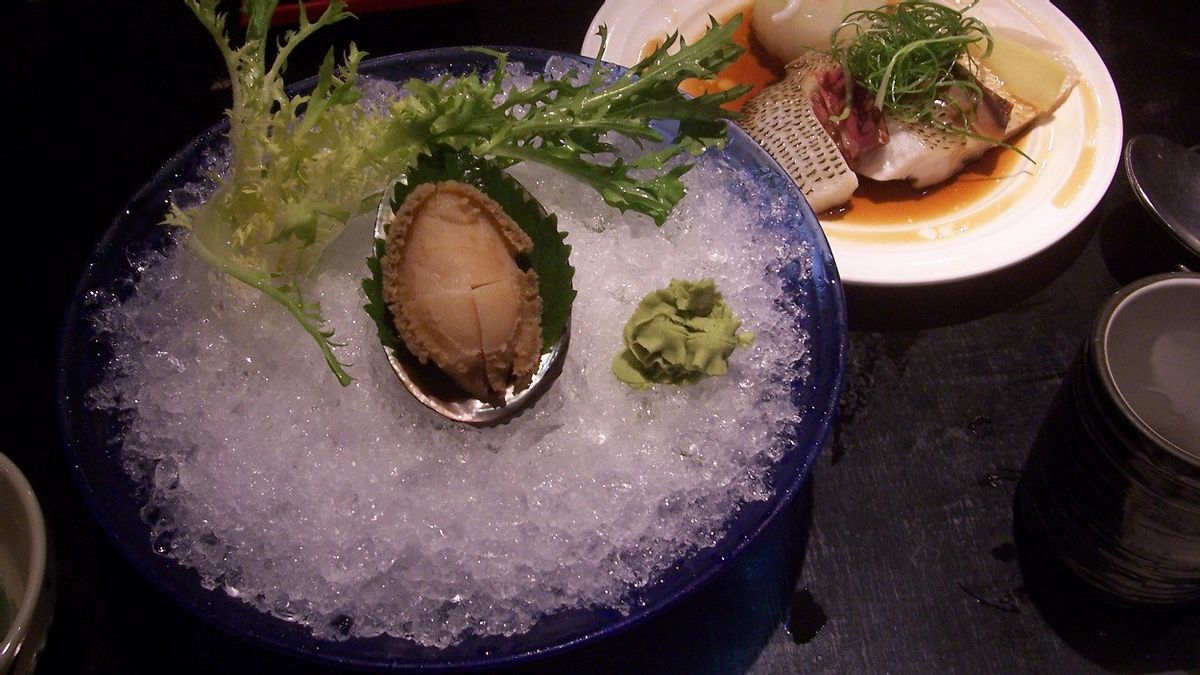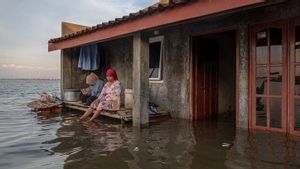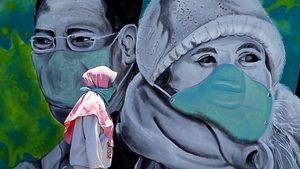JAKARTA - A research paper found that abalone and certain seaweeds from South Jeolla Province, South Korea were effective in preventing COVID-19 infection.
In the international academic journal 'Marine Drugs' a research paper entitled 'Evaluation of Antivirus Effect against SARS-CoV-2 Propagation by Crude Polysaccharides from Seaweed and Abalone Viscera in Vitro' was published on 23 April.
Co-authored by researchers from the Korea Zoonoses Research Institute under Jeonbuk National University in Iksan, North Jeolla Province, and the Marine Biotechnology Research Center under the Jeonnam Bioindustry Foundation in Wando County, South Jeolla Province.
The researchers evaluated raw polysaccharides extracted from two species of seaweed and abalone offal, all from Wando, for their inhibitory effect on the spread of SARS-CoV-2, the type of coronavirus that causes COVID-19.
According to the paper, they found the crude polysaccharide 'hizikia fusiforme,' one of the two types of seaweed, showed the strongest antiviral effect, followed by "sargassum horneri," another seaweed and abalone offal.

"These results suggest that these raw marine polysaccharides effectively inhibit the spread of SARS-CoV-2 by interfering with the entry of the virus," the paper said, Korea Times May 3.
Marine Drugs previously published a research paper by Korean researchers with similar results in April 2021. Jointly submitted by Jeonnam Bioindustry Foundation, pharmaceutical company Medical & Bio Decision and the Marine Bio Team of the Wando County Government.
This study investigated the extracted crude fucoidan sulfate and polysaccharides. from six species of seaweed and abalone offal for its inhibitory activity against the entry of the SARS-CoV-2 virus.
The Jeonnam Bioindustry Foundation said on May 2 their latest discovery would provide a 'critical lever' to harness extracts from marine species, as medicinal ingredients to treat a disease that has claimed an estimated 6.2 million lives, infected more than 510 million people reported in nearly 200 countries.
An official from the foundation said it would conduct non-clinical studies using the results of their latest research to develop a cure for the disease or preventive medicine in the form of a nasal spray.
"Research has re-proven the superiority of abalone and seaweed from Wando," said Kang Seong-woon, who represents regional governor Shin U-chul.
"We will continue to support research to contribute to developing highly anticipated pharmaceutical products as well as increase our consumption of abalone and seaweed to boost our local economy."
Eating seaweed and abalone has long been recognized in South Korea, for its nutritional content, including vitamins, iron, calcium, and protein. Wando is famous in the country for producing farmed abalone.
The English, Chinese, Japanese, Arabic, and French versions are automatically generated by the AI. So there may still be inaccuracies in translating, please always see Indonesian as our main language. (system supported by DigitalSiber.id)













